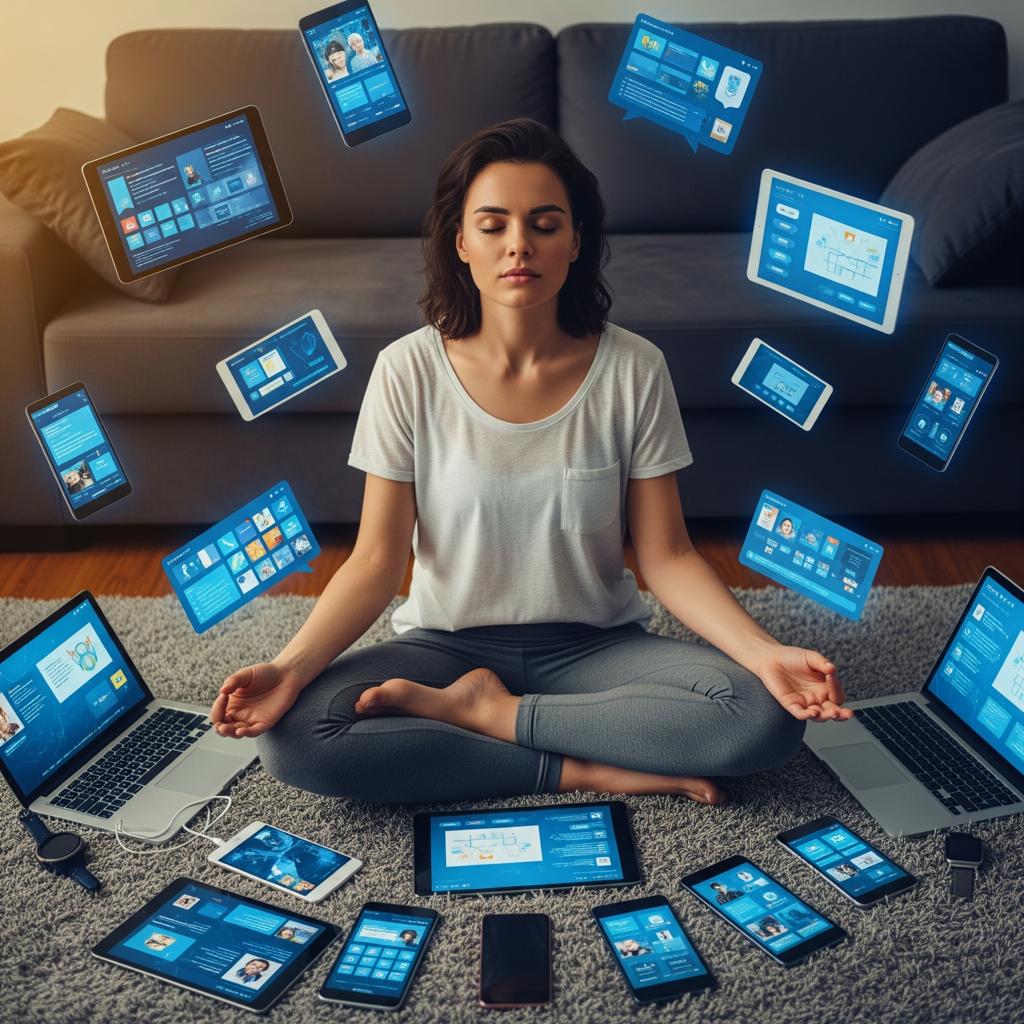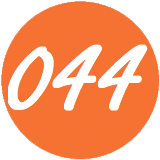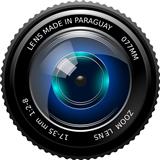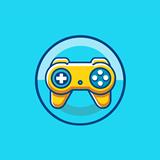
Mindfulness in Pixels: Taming Digital Stress
In 2025, we hold out in an earned run average of constant hyperconnectivity. Smartphones, tablets, electronic computer, and wearable devices keep us touch base to the world 24 time of day a day, 7 mean solar day a week. While this connectivity offers countless advantages in terminal figure of communicating, information, and opportunity, it can also generate a growing and frequently underestimated phenomenon: digital tenseness.
Understanding what digital stress is, how it manifests itself and, above all, what strategies to adopt to mitigate its effects is all-important for maintaining genial substantially-beingness in this engineering science-overlook era.
What is Digital Stress?
Digital emphasis (or “digital overload”) concern to a serial publication of physical, emotional, and psychological symptom leave from the excessive or faulty use of digital technologies and constant vulnerability to online information and stimulation. It is not a formal clinical diagnosis, but a descriptive term for an more and more widespread condition.
Among the main causes of digital stress are:
Selective Information overload: The sheer loudness of data, newsworthiness, subject matter, and notifications we receive every day can be overwhelming.
Social imperativeness and FOMO (Fear Of Missing Out): The intuitive feeling of always experience to be up to date, not wanting to overleap out on consequence or online interactions, and constantly comparing ourselves to others' lives as filter out through social mass medium.
Blurred bounds between work and private life: The ability to be approachable at all times via electronic mail or work messages can extend make for hours well beyond the authority.
Notification dependency: The almost compulsive response to the speech sound or vibration of a appraisal, which perturb and interrupt bodily process.
Digital multitasking: The habit of perform multiple tasks simultaneously on dissimilar concealment, abbreviate the ability to concentrate.
Symptom of Digital Stress: Recognize Them to Take Action
Symptom can diverge from person to person, but the nearly common include: Recognizing the signs of digital stress is the first step in handle it.
Strong-Arm: Eye strain (computer imaginativeness syndrome), vexation, muscularity latent hostility (particularly in the neck opening and shoulder joint), quietus disturbances (insomnia, fragmented sleep).
Emotional/psychological: Anxiety, biliousness, difficulty concentrating, feeling overwhelmed, diminish productiveness, social drug withdrawal (paradoxically, despite connectivity), dispirited self-admiration due to online comparability.
Behavioral: Determined smartphone checking, difficulty disconnecting still in societal situations or during eternal sleep, isolation.
If you recognize many of these symptom, you are in all likelihood live the essence of digital tension.
Effective Strategies to Protect Your Judgement
You don't have to ease up up engineering science completely to protect your intellect. The destination is to develop a healthier, more balanced family relationship with it. Hither are 7 hardheaded and verifiable strategies:
Set Time Limits and Disconnect:
Monitor your usage: Use the built-in features on your smartphone (e.g., “Screen Time” on iOS, “Digital Wellbeing” on Android) to sympathize how much fourth dimension you expend on apps.
Dictated “screen-destitute” times: Dedicate specific times of the twenty-four hour period (e.g., the beginning hour of the morning, the concluding time of day of the evening, during meals) to being destitute of digital gimmick.
Create “technology-free zones”: Don't use up your phone to your bedroom or the dinner party table.
Manage notifications intelligently:
Sprain off non-essential notifications: You don't need to be notified every time someone wish one of your photos. Only keep notification that are truly pressing or necessary (e.g., birdsong, messages from authoritative contacts).
Use “Do Not Disturb” mode: Turn Over it on while working, studying, sleeping, or relaxing.
Group notifications: Many apps allow you to welcome a sum-up of notifications at set times, rather than individually.
Practice Digital Detox:
Short breaks: Consume short breaks away from your projection screen during the working day.
Offline Clarence Shepard Day Jr. or weekends: On A Regular Basis plan longer menstruation (a few hours, an afternoon, a unanimous weekend) without any digital devices. Dedicate this time to offline activities such as reading a book, represent sports, being out of doors, or spending lineament time with protagonist and family.
Disconnected vacation: If possible, consider allow for your most demanding gimmick at home during your vacations.
Naturalize mindfulness and mental bearing:
Breathing exercises: When you palpate overwhelmed, consider a few minutes to focalize on your breathing.
Meditation: Even just 5-10 minute of arc a twenty-four hours can help improve concentration and reduce anxiousness. There are many free or ante up apps (e.g., Headspace, Calm) that can conduct you.
Focus on one thing at a clock time: Nullify digital multitasking. If you're reading an clause, focus only on that; if you're verbalize to someone, put your phone away.
Take care of your sleep:
Keep Off concealment before bed: The blue light pass off by smartphones and tablets can interfere with the product of melatonin, the sleep hormone. Avoid devices at to the lowest degree an hour before going to bed.
Produce a pre-sleep routine: Read a paper Christian Bible, take a affectionate bath, heed to relaxing music.
Make your bedroom a sleep chancel: Dark, subdued, and at a comfortable temperature.
Be mindful of the cognitive content you consume:
Restrict your exposure to negative news: While it's important to outride informed, excessive photograph to electronegative intelligence can increase anxiety and stress.
Select your social mass medium provender: Follow accounts that inspire, cultivate, or make you feel good, and unfollow those that generate envy, choler, or anxiousness.
Verify your sources: Get Word to distinguish precise entropy from simulated intelligence to reduce cognitive overburden and stress from misinformation.
Seek a balance between your online and offline life:
Prioritize tangible relationships: Dedicate time and energy to face-to-grimace interactions with friends and family.
Practice offline hobbies: Dust off an old Falco Subbuteo or ascertain a new single that doesn't postulate a screen (for instance, house painting, gardening, sportswoman, cooking).
Be tolerant to yourself: Don't feel guilty if you don't answer to a message right away or if you're not always online. Your genial well-beingness is a priority.
Living in an always-connected world is an inevitable reality, but digital emphasis doesn't have to be. By consciously adopting these strategy, you can retrieve control of your relationship with technology, protect your thinker, and importantly improve your overall advantageously-being. Retrieve: engineering science is a prick at your service, not the other fashion around.









